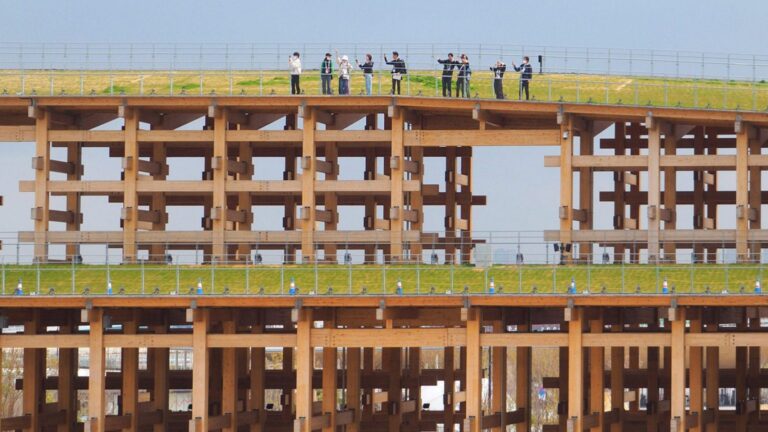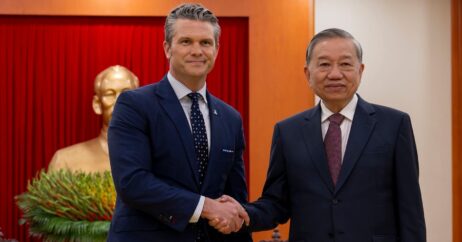Jakarta — In a ceremony that gathered Indonesia’s foremost academic, professional, and institutional leaders, the Faculty of Medicine of Syiah Kuala University (USK) emerged as a standout figure in the country’s higher education landscape. The institution was formally recognized during the 3.0 Award Trends Summit 2025, hosted by Indonesia Award Magazine, held at the prestigious Grand Mercure Kemayoran Hotel in Jakarta on Saturday, March 15, 2025. Amid the pageantry and celebration of excellence, the faculty received the Inspiring Professional & Leadership Award 2025, a distinction that signifies more than recognition — it reflects a deep and transformative academic journey that has placed the university among the most respected names in Southeast Asia’s medical education sector.
Although the award was officially conferred upon the Dean, Dr. dr. Safrizal Rahman, M.Kes., Sp.OT, the scope of the recognition extended far beyond individual leadership. It embodied the collective achievement of an academic institution that has, over the past decade, pursued institutional reform, research advancement, and global partnerships with unwavering clarity and purpose. From its base in Banda Aceh, Syiah Kuala University’s Faculty of Medicine has steadily risen to become a national leader — and a regional model — in delivering medical education that is globally competitive, socially responsive, and scientifically rigorous.
A landmark validation of the faculty’s success came earlier this year when it was ranked among the top three medical faculties in Indonesia by the Times Higher Education World University Rankings (THE WUR) by Subject 2025. This placement positioned the faculty alongside long-established universities in the country’s largest urban centers, effectively marking USK as a dynamic challenger and a standard-setter for institutions beyond Indonesia’s traditional academic corridors. The ranking, assessed through a blend of research output, teaching quality, international outlook, and societal impact, confirms that the faculty has achieved academic excellence through vision, innovation, and strategic governance.
What distinguishes the Faculty of Medicine at USK in the international context is its integrated model of medical education that balances local healthcare needs with global academic standards. The faculty has embarked on a comprehensive transformation of its curriculum, introducing competency-based modules, simulation-based learning, early clinical exposure, and digital platforms that reflect 21st-century pedagogical trends. With faculty members actively involved in international research collaborations and cross-border academic networks, the institution has fostered an intellectual environment that is both rooted in community values and open to global discourse.
The clinical component of medical training is reinforced through a long-standing partnership with dr. Zainoel Abidin General Hospital, one of western Indonesia’s leading referral hospitals. This collaboration enables students to engage directly with diverse patient cases under the guidance of experienced clinicians, enhancing both technical proficiency and humanistic care. The hospital serves as a critical bridge between classroom instruction and public health service, making clinical excellence a living principle of the academic mission.
In his official remarks during the award presentation, GP Rajasa Pranadewa, Chairman of the 3.0 Award Trends Summit 2025, highlighted the significance of the faculty’s trajectory. He praised USK for building a sustainable academic ecosystem that not only achieves performance metrics but also prioritizes social responsibility, innovation, and long-term institutional resilience. According to Rajasa, the award was not simply about meeting criteria — it was about transforming expectations and demonstrating how a university in a historically underserved region could rise through strategic commitment, inclusive leadership, and academic courage.
The faculty’s commitment to elevating its global presence is also reflected in its expanding portfolio of international programs. These include faculty and student exchanges, collaborative research grants, visiting professorships, and shared policy dialogues with partners across Asia, Europe, and the Middle East. These partnerships are not only beneficial to the university’s visibility but are instrumental in shaping graduates who are equipped to serve both local communities and global populations.
From a press and international education perspective, the recognition of Syiah Kuala University’s Faculty of Medicine is a timely reminder of the shifting center of gravity in higher education across Southeast Asia. As global universities seek meaningful collaborations and high-impact academic alliances, institutions like USK are proving to be fertile grounds for innovation, mutual growth, and shared excellence.
The narrative unfolding from Banda Aceh is not one of catching up — it is one of leading. And in receiving national distinction at the 3.0 Award Trends Summit 2025, Syiah Kuala University’s Faculty of Medicine has signaled to the global education community that it is not only ready to compete — it is ready to contribute.









